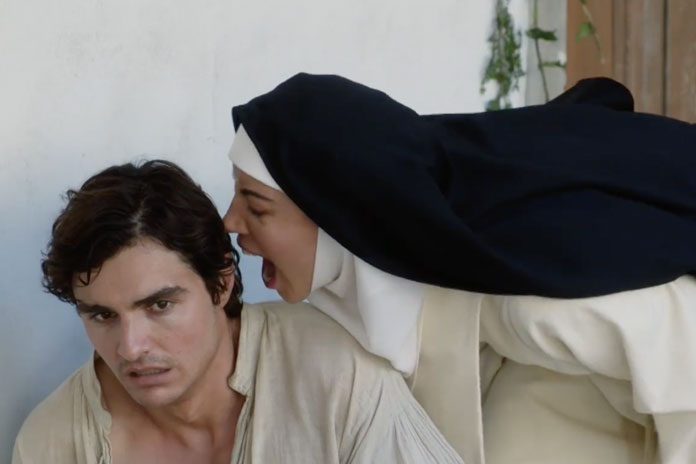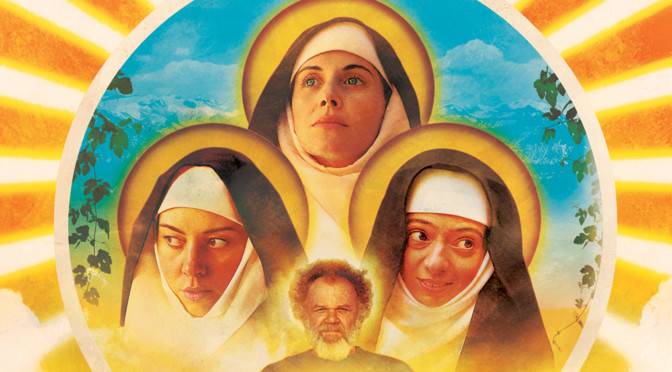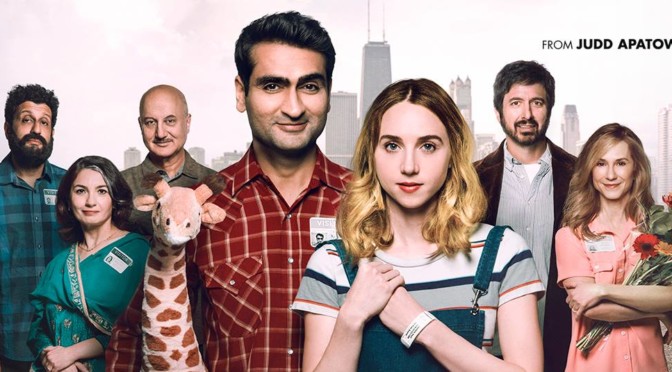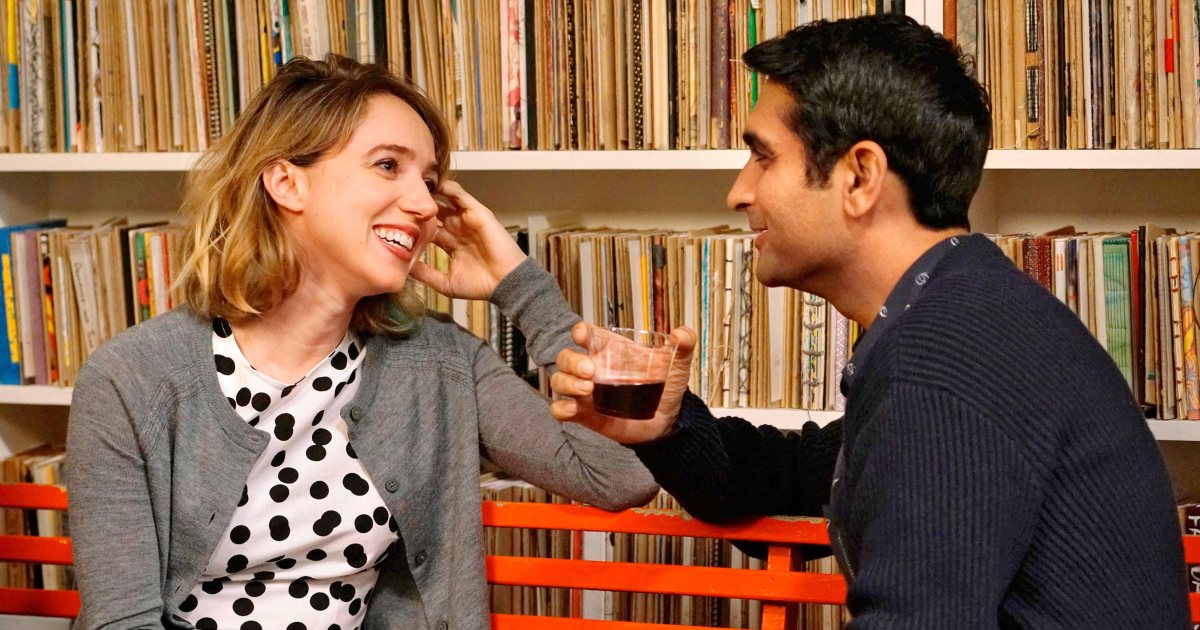What could be funnier than nuns in a convent? That’s a phrase never spoken before. Jeff Baena (Life After Beth) directs a comedy about 14th century nuns. Sisters Alessandra (Alison Brie), Genevra (Kate Micucci) and Fernanda (Aubrey Plaza) live a routine life of prayer and chores until Massetto (Dave Franco), a young, handsome man, becomes their new gardener. Massetto poses as a deaf-mute to avoid contact with the sisters, but his presence creates impure thoughts in all of them. Having never been in this situation before, the women each approach Massetto, and their newfound urges, in their own ill-conceived ways.
The cast is stacked with talented comedians. Every role, even minor ones, is filled by an actor from a Seth Rogen or Judd Apatow film. Most of them stick to their typical roles with Plaza leading as an unhinged maniac. She repeatedly threatens people with violence and doesn’t appear capable of feeling any kind of sympathy. Her character is a stark contrast to Brie who plays an innocent woman that wants to get married and leave the convent but, due to her family’s financial situation, can’t afford her dowry. Brie’s initial sweetness doesn’t last long under Plaza’s influence and her progression into delinquency is an absurd and entertaining descent.

Anachronism is the name of the game when it comes to the film’s humor. First and foremost, who can picture Aubrey Plaza as a nun? Nobody who has seen her in anything and Baena knows that. He makes his intentions clear from the opening scene where Plaza and Micucci attack and berate the church gardener for smiling at them and wishing them a good morning. They swear like sailors using modern curses and not even the slightest hint of an era-appropriate accent with Franco still maintaining his surfer-bro drawl. The only attempts at recreating the period are restricted to the on-location shooting and the attire. Other than that, the film plays like a raunchy sex comedy.
The Little Hours eclipses its peers by its use of the setting. Vulgarity and toilet humor can very quickly become irritating and, initially, it seems like the film will follow that same path, but things change as we learn more about the characters. These aren’t the typical filthy minded cast. These are nuns in the medieval age which means they haven’t actually had any real-life experiences. They have been raised in the convent since they were young so all of their behavior comes from a place of extreme sheltering. This makes even the alarmingly aggressive behavior somehow charming. As the characters throw themselves at Franco, their complete naivete is endearing. They are inexperienced to the point of stupidity so their attempts to win Franco’s attention, while hiding their transgressions, are exercises in hilarious ineptitude. These actions are their baby steps toward understanding themselves as adult women with adult feelings. The competition between the nuns creates misunderstandings that compound into a completely ridiculous climax that reveals how little they know about the world and how comically hypocritical they are. Expressed through a lens of complete and foolish naivete, Baena imbues an anachronistic sex comedy with a charming innocence.

4/5 stars.






